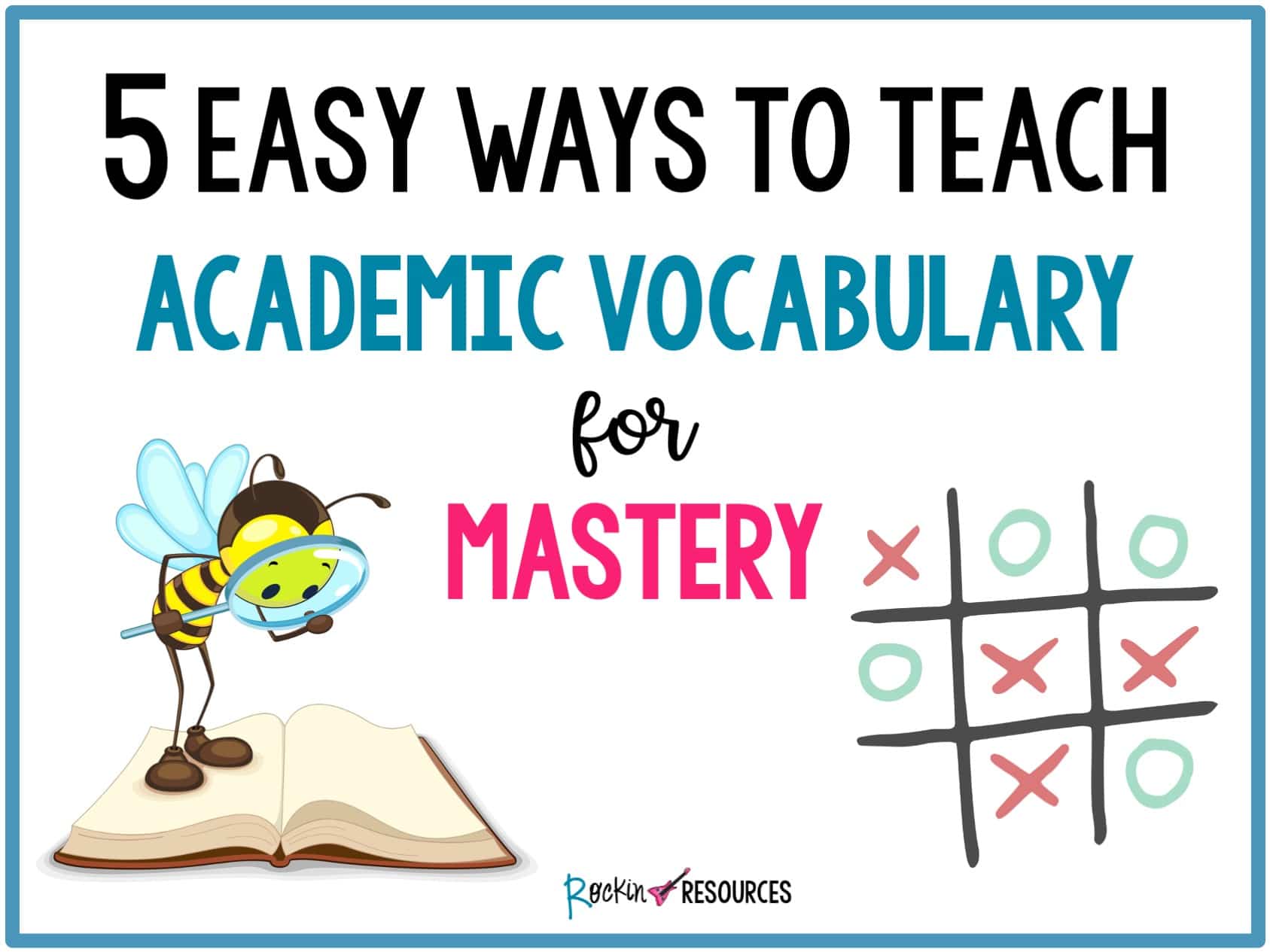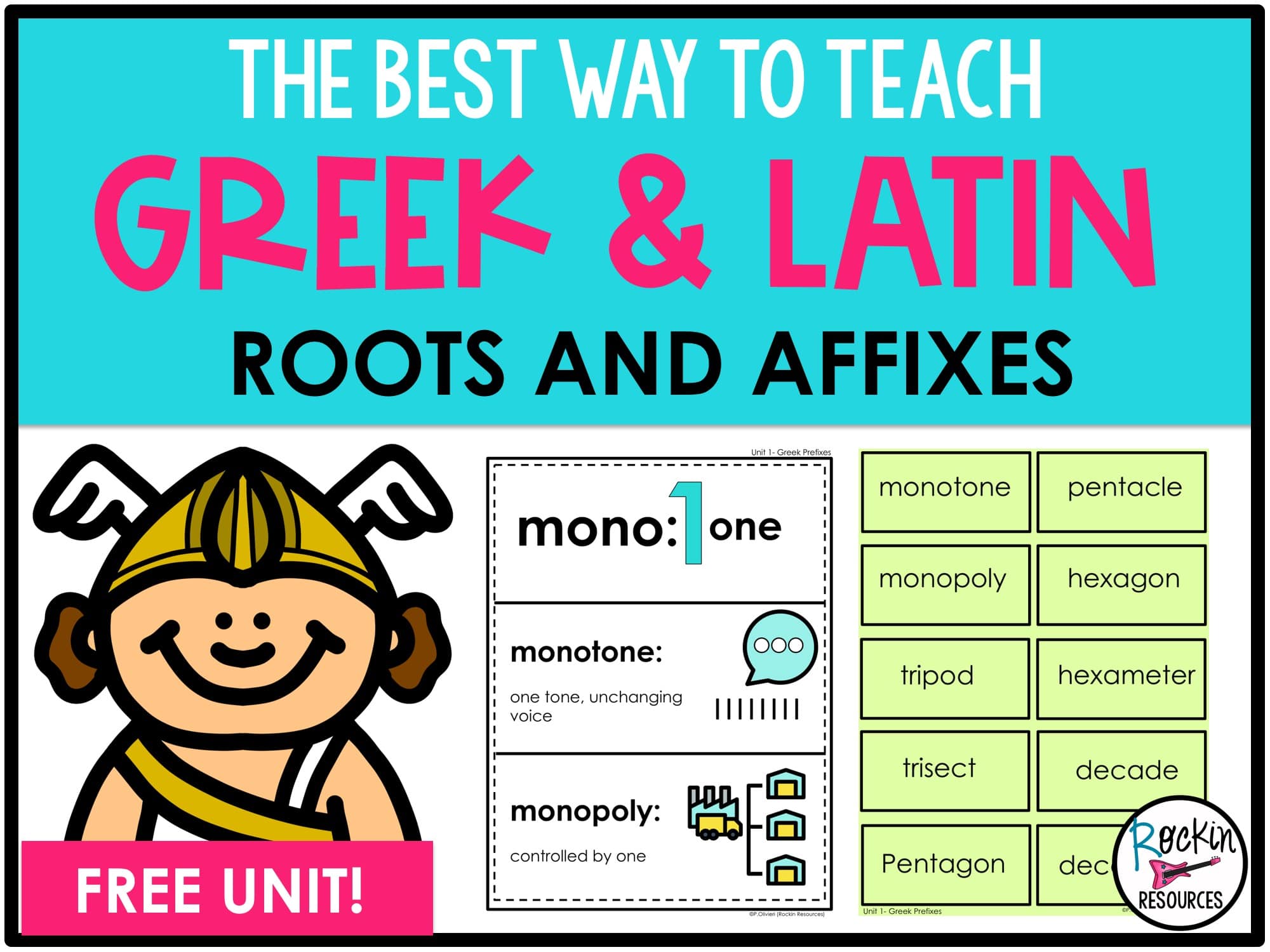Have you decided to focus on academic vocabulary instruction? Let us convince you with “3 Reasons Why You Should Teach Academic Vocabulary.” Teaching it might seem daunting, but fret not! We have five easy and effective ideas to help you master it, whether you have a few minutes or a chunk of time to spare.
USING THE PROPER TERMS
This strategy seamlessly integrates academic vocabulary into all subjects with minimal extra planning. During direct instruction, incorporate specific academic words into your math, social studies, science, and ELA lessons. For example, instead of using common terms in math, introduce and reinforce richer vocabulary like “factor” and “product” when teaching concepts. Display definitions on the board or an anchor chart for quick reference. Reuse these words consistently until they become part of everyday classroom discussions, ensuring students learn their meanings and how to use them accurately.
*** These can also be added to a WORD WALL. Then refer to it throughout the year.
SENTENCE FRAMES
Vocabulary sentence frames are versatile tools that can complement any lesson or topic. While they require a few minutes of preparation beforehand, they are not necessarily “on-the-go” resources. If time runs short during your lesson, you can quickly jot them down on the whiteboard or project them on the SmartBoard for students to copy. These frames can serve as exit slips covering various academic vocabulary. For instance, if your recent math unit focused on terms like obtuse, acute, right, and angle, provide a sentence frame exit slip for students to demonstrate their understanding of these definitions.
BE A VOCAB DETECTIVE
Engaging students in vocabulary detective work can be enjoyable for all ages, especially if you join in the fun. Create the right atmosphere by distributing mini-magnifying glasses, crafting detective badges, and kicking off the activity with a mystery-themed read-aloud like Detective LaRue or an Encyclopedia Brown story. Establish everyone as “Vocab Detectives” and seamlessly integrate vocabulary words into various subjects. Explain to students that their role is identifying subject-specific words, such as those related to math, science, reading, or testing. You can provide a pre-made list of words for them to hunt down. (I have some for ELA and Math) When a student discovers a word, add it to your “Casebook” anchor chart, giving credit to the detective. For example, if “Respond” and “Enumerate” are found during an activity, add them to the chart along with definitions and example sentences. As your list grows, introduce review games and handouts to reinforce learning, such as activities where students “Crack the Case” by using words correctly in sentences or matching definitions to terms.
MINI LESSON
Mini-lessons don’t have to be flashy (although they can be lots of fun and be quite memorable), but they are so essential in teaching. A mini-lesson typically takes a narrow focus on a smaller skill that you want to teach so that it can be used in conjunction with a larger concept. Utilize these small chunks of time to introduce and practice vocabulary concepts that will then be utilized in a larger lesson. As you begin a lesson on poetry, you might introduce the terms assonance and alliteration, providing definitions with examples from a poem that you’ll share. Perhaps you intend to start teaching fractions. Introducing the words numerator and denominator would be essential anyway, but instead of simply saying “The top number is the numerator and the bottom number is the denominator” explain what they mean, relating your definitions concretely to parts of the whole. You could also round out your mini-lesson with manipulatives to provide a concrete example to accompany your vocab!
REVIEW GAMES
Review games are the big-ticket item for both teachers and students. They can take time to prepare and to facilitate, but students typically love them more than handouts or direct instruction. Once your students have been introduced to a set of vocabulary terms (I recommend grouping them by math, ELA, or test-taking terms), spend time practicing and reviewing them in some of the ways mentioned above before having a whole class or small group game time. Here are some games you can play or create.
Kahoot or Quizizz – Whole class or centers with individual devices. You can assign Kahoots and Quizzizz through Google Classroom or by sharing links.
Jeopardy – Whole Class. Create one the old-fashioned way on a whiteboard or with a PowerPoint, or take advantage of free services like Jeopardy Labs.
Tic-Tac-Toe – Centers. Have three students per center use small whiteboards. Two players face each other in Tic-Tac-Toe while the third player gives questions, either providing the definition of the vocabulary words and asking for the correct term, or providing the term and asking for the correct definition. You’ll need to provide a list or word cards for the quiz master to use. The quiz master can play the winner of the match ensuring that all three students will have a turn to be the quiz master.
I Have…. Who Has… Cards – Whole class or centers of about four students. You can make your own cards or use these editable ELA, Testing and Math Vocab sets with this Academic Vocabulary Words Resource.
WORTH THE INVESTMENT?
If you’re worried that you’ll spend too much time teaching academic vocabulary or too much time creating resources that won’t have any other purpose—put your mind at ease. There are so many ways that you can use and re-use the words you’re teaching and the methods and strategies that helped you. Let’s examine a few of the long-term uses for vocabulary resources.
- Continued academic success, especially in the upper grades, college, and careers. As we mentioned in the Testing Vocabulary blog post, a knowledge and mastery of academic vocabulary terms creates more opportunities for success and advancement in many areas and fields, even those that do not involve college degrees. What you are doing in a few minutes or hours per week could translate into lifelong success. You’re planting a seed or building a nest egg that will help the next generation.
- Review for testing, math, and ELA concepts. The terms you’ll teach in academic vocabulary are academic, after all. Your students will use them again in content areas and in yearly normed and standardized tests. Again, you’re investing in the future success of your students.
- Thinking in the immediate future, academic vocabulary words make great challenge words for spelling and great detail words for specificity in technical and expository writing.
- Studying for a test in ELA or Math? Use your vocabulary charts and game cards as flashcards and self-check lists.
- Worried about the “summer slide” or have parents who would like some extra practice activities? Vocabulary activities are easy to turn into packets and handouts to help students keep their skills sharp.
- And like the last post mentioned, teaching GREEK AND LATIN words is also a great way to help students understand a variety of words they will find on standardized tests!
SEE SIMILAR BLOGS:
Discover Related Resources:
-
Greek and Latin Roots – Prefixes, Suffixes Study Units Bundle – 20 UNITS!
Original price was: $59.98.$24.00Current price is: $24.00.
SHARE THIS POST ON PINTEREST:









